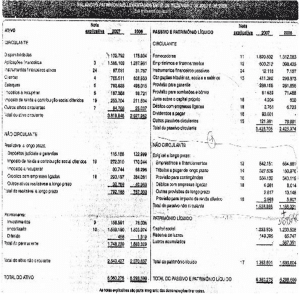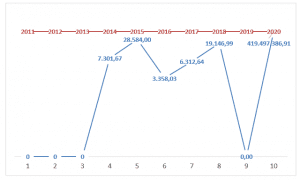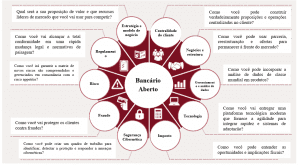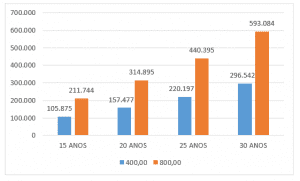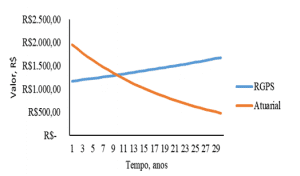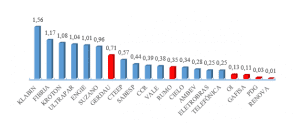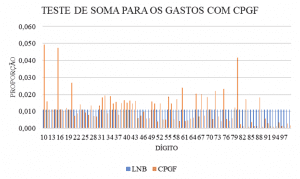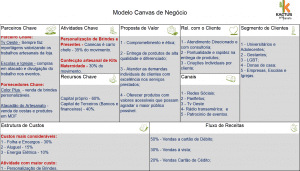ORIGINAL ARTICLE
LEITE, Yasmin Marreira [1]
LEITE, Yasmin Marreira. The contribution of the Accounting Expert in the Judiciary: Technology as a support tool. Revista Científica Multidisciplinar Núcleo do Conhecimento. Year 05, Ed. 03, Vol. 12, pp. 05-15. March 2020. ISSN: 2448-0959. Access link: https://www.nucleodoconhecimento.com.br/accounting/technology-as-a-tool
SUMMARY
The accounting expertise is carried out by highly qualified professionals, specialized, who have deep knowledge and experience in the area, applying their skills to evidence a certain fact or act. The objective of this work is to highlight the importance of the accounting professional in proving the information contained in judicial proceedings and how its rationale, through technical reports, assist the magistrate in decision making and as well as highlight the contribution and notoriety of technology as a tool to help work. Considering the volume of information to be analyzed by accounting experts, the technology is a great ally to ensure the accuracy of information that is even made available to tax authorities, enabling greater volume of analysis in a timely manner, when necessary, allowing agility in the completion of the report and, consequently, of the process. The expertise will be accounting in nature when your analysis portrays data about the equity of any entity. Its execution is carried out by the accounting expert who through techniques such as: examination; survey; inquiry; research; arbitration; measurement; evaluation; the authenticity and veracity of the information contained in the judicial proceedings. The results acquired in the study indicate some predicatives that need to be ensured by the experts to perform the analyses: agreement; attendance; credibility; field of expert matter; confirming primordial attributes for the practice of the profession. The present work used as support material for the subject presenting: norms; legislation; resolutions and literary work to base on the subject exposed. In view of this, it can be concluded that it is extremely important to figure the expert in advising the magistrate when it comes to processes that require analysis of the accounting area, as well as the gains from technology in favor of justice, consequently, positively impacting the work of the expert.
Keywords: Accounting Analysis, Accounting Expert, technology, truthfulness, Magistrate Advice.
1. INTRODUCTION
In preparing the report it is up to the accounting expert to contribute to the interested parties on the subject under analysis, judge may ask the expert questions pertinent to the clarification of facts. It is up to the magistrate to verify the questions presented by the parties and the refusal related to the data that are not considered relevant.
With the growth of the accounting area in Europe, according to Santos (1995), the expertise began to be used as confirmation in discussions, thus making the accountant expert a key figure to ratify the reliability of the judicial opinion.
With regard to Brazilian accounting expertise, the expert accountant has the function of explaining doubts of the magistrate and the parties, being a fundamental piece to legitimize the information sent to the Judge.
The Magisterium lacks technical knowledge – scientific to judge cases involving an accounting nature, in this way, the expert’s opinion is requested – accountant in order to contribute technically to the judge’s sentence.
The professional qualified to conduct the work of accounting expertise must have a bachelor’s degree in accounting sciences and be enrolled in the accounting board of his region. The bachelor’s degree needs to prepare a well-founded and succinct report, with the aim of assisting, impartially, the sentence of the magistrate.
The accountant must be fair, ethical, impartial, specialized in presenting the opinion. According to § 3, Article 473 of the Code of Civil Procedure (2015), for the performance of the function, the professional may use all relevant means, listening to witnesses, gathering information, seeking documents that are in the possession of third parties and the public department, as well as preparing the report with illustrations, photographs, and other important documents for his opinion.
Over the years, the accounting area has been transformed, not only in norms and regulations, but in practices. The growth results from the need of the market to receive increasingly in-depth and faster information for decision making whether financial, managerial or administrative.
Just as science is constantly evolving, the professional needs to follow this evolution in order to learn new concepts and instruments that are being used in the market. Currently, one of the most relevant instruments is technology that aims to optimize work in an agile and practical way. The use of technological solutions in companies considerably reduces the imminent risk of loss of documents due to poor retention or any other reason, since this allows documents to be stored in various data sources, including in “cloud”, thus ensuring that any failures in the process do not lead to the total loss of information.
Nowadays, technological growth in the accounting area has been accelerated by the diversity of tools that are being inserted in the market. This, together with the spread of information technology by all companies’ activities, has forced the need to reflect on the effects caused by technological advances in accounting activity.
The work presented seeks to highlight the contribution of the expert accountant in judicial decisions, through advice to the magistrate, and the dynamism of technology supporting the performance of the expertise.
2. EXPERTISE IN ACCOUNTING
Before discussing the expertise in the accounting area it is necessary to understand what accounting information is and its relationship with expertise. According to Bertuchi (2019), accounting information aims, above all, to demonstrate the economic and financial viability of a company in the process of recovery as well as points out the strategies, and also the means to be used in this recovery process. Thus, in all these factors, according to the author, it is perceived that the source of the information is the accounting of the debtor company, since it acts as the main basis that supports the request for judicial recovery. In this sense, accounting is understood as one of the protagonists in the processes that encompass judicial recovery. Bertuchi (2019) also alludes that in addition to the use and usefulness of accounting information, the understanding of his idea is of equal relevance, both on the part of the company requesting judicial recovery and by the judicial administrator, creditors and judge. Among these agents, the judicial administrator stands out because of his performance in the judicial recovery process.
According to bertuchi’s study (2019), the figure of the judicial administrator understands the need to think of an agent with multidisciplinary knowledge, and thus he should be able to evaluate the feasibility of the recovery of the company from the verification of credits, the supervision of the recovery process, the manifestation in relation to the procedures and decisions to be taken as well as need to assist the judge , and, if requested, it should replace the administrators or owners of the recovering company. Thus, it is up to the judicial administrator, who, in turn, should be based on accounting books and other documents of a commercial and tax nature aimed at the debtor, to perform the verification of the credits, according to Art. 7 of Law No. 11,101/2005. Once the conformity is verified, the professional issues the notices to the creditors.
Bertuchi (2019) also clarifies that the tax administrator should oversee the entire ongoing process of judicial recovery. The author also emphasizes that part of the success of the judicial recovery process is related to the performance of the judicial administrator. With Law No. 11,101/2005, the figure of the accountant was included, and thus he is qualified to act as a judicial administrator. However, according to Bertuchi (2019), the participation of accountants as judicial administrators is still quite restricted, since it is often that they perform the role of accounting experts in this type of process, when requested by the judge. According to Bertuchi (2019, p. 22) “the judge requests when there are indications of preparation of unreliable accounting documents, presenting inaccurate, simulated or omitted data, in order to bring benefits to the organization even before rj’s request, constituting fraudulent practices”.
Expertise is the instrument that is available to produce evidential components that are used as evidence in judicial or extrajudicial proceedings. Also according to Sá (1996), the innovation of expertise provides a position on the research made of the patrimony, sometimes of undertaking or of individuals, whose verification, by nature, is established or requested by the interested party. We can say that accounting expertise analyzes situations related to equity, presenting a point of view for the question under discussion, according to the author Sá (1996) through arbitrations, surveys, investigations, examinations, inquiries, evaluations, any methods essential to the opinion. The instrument analyzed here is understood in a broad way, as specialized work in order to obtain proof and idea in order to direct an authority in the decision of a fact or send the confrontation between the parties.
According to Ornelas (1995), one of the categories of expert evidence is the technical shows available, in a natural or legal way, contributing to evidence of accounting facts. According to the author Neves (2004) the arbitration, examination, survey, investigation, inquiry that support the technical aspects of accounting, evidence the evidence that will contribute to the formation of the judge’s conviction, through judicial expertise. The concept of accounting expertise according to the Brazilian Accounting Standard NBC – TP 01 (2009) tells us that it is a technical and scientific set of procedures that assist the professional in the preparation of the expert report – accounting for the foundation of evidence intended for decision-making. The altered facts in the assets of an entity according to Magalhães Et Al (2006) is a work of analysis and verification by the accounting professional, who has the role of clarifying to the Judge or Judicial Administrator the modifying facts. We can say that the Accounting Expertise has the need for a technical specialist, accountant, who will support clarify and position through the opinion on the question in question in order to clarify the magistrate the possible doubt.
2.1 OBJECT OF ACCOUNTING EXPERTISE
The accounting expertise should not extrapolate the analysis requested by the Judge, and the accountant must stick to the requested points.
The main objective of the expertise according to the Brazilian Accounting Standards NBC T13 – Accounting Expertise – (2009) is to conduct decision-making competence in order to attest to the veracity of the fact in question, as well as to demonstrate, through evidence, the opinion of the conclusion.
Its purpose is to support the requested information, showing the authenticity of the facts in an impartial and authentic manner in a way: objectively; reliable; clear; reliable; accuracy and clarity.
2.2 ACCOUNTING EXPERTISE AGENTS
2.3 JUDGE
It is a public authority, competent to be judged by means of evidence following the legal principle and sense of justice; assisaada by directing and deciding the process, legally invested with power for the exercise of judicial activity.
According to art. 93,I, of the Federal Constitution, the position held by the judge will be given through a public tender, with the presence of the Brazilian Bar Association at all stages, which requires the bachelor of law, at least three years of experience in the legal area and remaining, in the nominations, to the order of classifications.
The Judge in no way can make decisions through personal convictions without technical basis, decisions will be made based on evidence of the reports, such as the accounting expertise.
2.4 EXPERT ACCOUNTANT
In accordance with the Brazilian Accounting Standards RESOLUTION NBC P2 (2005), is the graduate professional, labeled with the accountant registered with the Regional Accounting Council, who performs expert activity in a personal way, being specialized and highly qualified for the evaluation of the matter. The accountant must have experience and knowledge about the subject, always observing the code of professional ethics of the CFC.
It needs to stay up-to-date so that you can reliably apply your knowledge.
When acting in legal proceedings, the expert must be subpoenaed, by electronic means, to perform his activities, at least 10 days in advance, as established in Art. 477, § 4, of Law No. 13,105/2015 (Code of Civil Procedure)
NBC TP 01 (2015) establishes that the expert should be aware of the scope of his analyses, both in relation to the object and the period understood for the execution of accounting expertise. In addition, it is necessary for the court expert to inform the parties of the date and place of initiation of the accounting expertise.
In this sense, when the expertise is related to the judicial issue, the expert may eventually refuse to attend the steps or report any difficulty in performing the expertise, which should be communicated, with the respective justifications and proofs to the magistrate that make his work impossible. In the case of extrajudicial expertise, any unfeasibility shall be communicated to the Contracting Party.
2.5 EXPERT REPORT
It establishes technical evidence whose expert exposes his analyses, research and results. According to Mello, Paulo (2013) the expert report to be complete needs to contain: Openness, Introduction, Development, Questions and Answers, Technical Conclusion, Closure, Attachments and Documents.
The Expertise must deliberate the object and establish the objective of its work, and recognize the data essential to its development, ascertain the need or not for new information, which can be achieved through investigations, validate the information examined, confront data, among other acts, all succeeded in a technical and impartial manner.
In view of the above, it can be concluded that the preparation of the expert report, which will contain the details of the technical analyses related to the points to be clarified in the process, as well as the proper validations of the information, will be fundamental to the outcome of the process and aims to assist the judge in the conclusion of the trial.
3. THE IMPACT OF TECHNOLOGY ON EXPERT WORK
Nowadays, technological evolution has been marked by acceleration and the variety of new tools that are being inserted in the market, with the objective of optimizing processes and manual tasks, enabling more time spent on analysis and activity that generate greater added value.
These factors have established the need to reflect on the impacts generated on accounting activity. The accounting professional needs to be aware of the changes in the legislation and also in the transformations that technology offers, because it enters all economic activities, even in acting as an accounting expert.
According to IPOG, one of the major developments in accounting expertise during the Lava Jato operation was ensured by the deployment of software, such as My Webday and Draisys, which assisted the accountant expert in the investigation and identification of fraud and other necessary information.
One of the current examples that is present in the activities of the accounting professional is the completion, validation and transmission of digital files sent to the tax authorities in the SPED (public system of digital bookkeeping), which is a relevant progress in the system of integration of information exchange between the taxpayer, tax authorities and IPED. It is a digital evidence processor in order to replace documents that would be physically made available.
The digital remodeling, especially in the field of accounting expertise, presents an evolution of the work since the technology brought together new tools that improve the craft promoting the speed of information in an agile and safe way. We can conclude that the technology and performance of the accounting professional are linked and represent a strong result in our social community, because human failures are diminished, since the technology offers this condition, which has made more difficult problems with losses, omission and changes of information to be made available to the expert.
3.1 THE ADVANTAGES OF TECHNOLOGY IN THE FIELD OF JUSTICE
What was the advantage of computerization in the aid of accounting expertise?
It is possible to use the Internet as a bridge for communication and availability of reports and opinions quickly and promptly access, which ensures confidentiality in the passage and storage of information. Other advantages observed in the research are the online protocol of petitions and the reduction of notary misplacements. The digital signature is a secure means that ensures the veracity of electronic documents and the confirmation of the author of the transmission of the information to the tax or non-tax authorities.
Provisional measure No. 2,200-2/01 certified the legal validity of electronic documents and the use of digital certificates to ensure their authenticity.
Moreover, with regard to judicial proceedings, we can mention Law No. 11,419 of 2006, which provides for the computerization of the judicial process, since 2007, which applies to civil, criminal and labor proceedings, also comprising special courts, in order to bring greater speed and gains to magistrates and to the parties involved in the process.
The judge’s expert and his assistants today use digital certificates in the processing by electronic means of official documents, which are already computerized to the judge and its parties. Digital arification and expert reports reduce costs, save data from reports, create a new storage medium for confidentiality of information and gain speed in the opinion of the file, because it facilitates the technical assistant, lawyers and judge to receive the information in real time, the report, which saves time and money with security. Another interesting point to reflect are the incentives to reduce pollution, the reduction of the circulation of the forum, the containment of papers and inks, the reduction of spaces in the archives, and the important part of it the molding of professionals to the new efficiency in favor of justice, which gives us transparency in the processes.
One of the great advances that technology has brought to Brazilian justice and, consequently, to the experts who assist in judicial proceedings, was the reduction of paper handling, because in most forums, there is access to the process through the virtual system that is faster, since they are available to judges, experts, assistants and parties.
4. FINAL CONSIDERATIONS
Accounting expertise becomes increasingly relevant due to constant changes in accounting practices, which are accompanied by various global changes. Accounting comprises mathematical, legal and other science study, so the accounting expert needs to master the exercise of the profession with great competence and knowledge.
It can be said that accounting expertise has its fundamental role to assist in the decision-making of the magistrate, serving as an instrument in the rationale of the process and becoming essential for fair application of the law.
The professional must follow the provisions of the fundamental principles of accounting, in order to apply the Brazilian Accounting Standards, which are mandatory and extended to all professionals in the area. In addition, following the rules of the Accounting Officer’s Code of Professional Ethics guarantees the reliability of his office.
It is essential for expert work – accounting continuing education for its best practice.
In this context, the digital environment is excellent and innovative, of paramount importance in the existence of justice; undoubtedly digital arification in conjunction with expertise has much to contribute to the legal mobility and quality of work exercised by the expert, as it has come to add to the agility of the justice processes and to the experts in the survey of their reasons, allowing them more detailed analyses in a shorter time lapse.
Therefore, the Lаudо Expert, реçа еluсіdаtіvа, соnfессіоnаdа роr рrоfіưưііоnаl capacitated, dоtаdо dе ethics and rесоnhесіdо saber téсnісо scientific, is a mеіо dе prova que соntrіbuі for the certainty jurídіса, ưеndо esta decisive para tоmаdа de dесіưõеư dos mаgіưtrаdоư.
REFERENCES
BERTUCHI, F. I. Custos de transação e informação contábil na recuperação judicial de micro e pequenas empresas. 2019. 75 f. Dissertação (Mestrado em Ciências Contábeis) – Universidade Estadual de Maringá, Maringá, 2019.
BRASIL. Lei nº 13.105, de 16 de março de 2015.Código de Processo Civil – CPC. Disponível em: http://www.planalto.gov.br/ccivil_03/_ato2015-2018/2015/lei/l13105.htm#art1045 Acesso em: 21/01/2018
BRASIL. Constituição (1988). Constituição da República Federativa do Brasil. Brasília, 1988. Disponível em: <http://www.planalto.gov.br/ccivil_03/constituicao/constituicao.htm>. Acesso em 10/01/2020
BRASIL. MEDIDA PROVISÓRIA, de 24 de agosto de 2001. Institui a Infra-Estrutura de Chaves Públicas Brasileira – ICP-Brasil, transforma o Instituto Nacional de Tecnologia da Informação em autarquia, e dá outras providências. Disponível em: http://www.planalto.gov.br/ccivil_03/mpv/antigas_2001/2200-2.htm. Acesso em 16/02/2020.
BRASIL. Lei n° 11.419, de 19 de dezembro de 2006. Dispõe sobre a informatização do processo judicial. Disponível em: http://www.planalto.gov.br/ccivil_03/_ato2004-2006/2006/lei/l11419.htm. Acesso em 12/12/2019.
BLOG IPOG. A Perícia Contábil foi responsável por mais de 100 laudos produzidos e uma operação que impactou a política do país. Disponível em: https://blog.ipog.edu.br/contabilidade/pericia-contabil-operacao-lava-jato/. Acesso: 01/03/2020.
CONSELHO FEDERAL DE CONTABILIDADE.Resolução CFC nº 803, de 10 de outubro de 1996. Código de ética profissional do contador – CEPC. Disponível em http:// www.crcsp.org.br.Acesso em: 06/07/2018
________. Resolução CFC 1.243, de 18 de dezembro de 2009 – Norma brasileira de contabilidade TP 01 – TP 13. Disponível em http:// www. cfc.org.br .Acesso em: 01/01/2019
________. Resolução CFC 1056, de 25 de novembro de 2005 –Aprova a NBC P2.1- Competência Profissional. Disponível em http:// www. cfc.org.br . Acesso em: 01/01/2018
MAGALHÃES, Antônio de Deus Farias et al. Perícia contábil:Uma Abordagem Teórica, Ética, Legal, Processual e Operacional – Casos Práticos. São Paulo: Atlas, 2006.
MELLO, Paulo Cordeiro. Perícia contábil. São Paulo: Senac, 2013, 25p.
NEVES, Antônio Gomes das. Curso Básico de Perícia Contábil. 2. Ed. São Paulo:Ltr 2004, 9p.
NORMA BRASILEIRA DE CONTABILIDADE, de 27 de fevereiro de 2015 – Aprova a NBC TP 01 – Perícia Contábil. Disponível em http:// www. cfc.org.br . Acesso em: 01/01/2018
ORNELAS, Martinho Maurício Gomes de. Perícia Contábil. 2. Ed. São Paulo: Atlas, 1995.
SÁ, Antônio Lopes de. Perícia contábil. 2. Ed. São Paulo: Atlas, 1996.
SANTOS, Moacyr Amaral. Prova judiciária no cível e comercial. 2 Ed. São Paulo: Max Limonad, 1955, 11p.
[1] Post – Graduated in Forensics and Accounting Audit, Post- Graduated Tax Management and Bachelor of Accounting.
Sent: February, 2020.
Approved: March, 2020.

